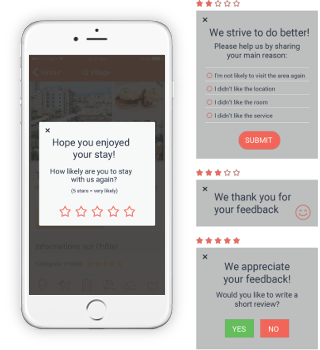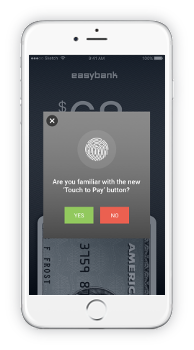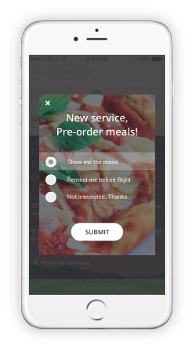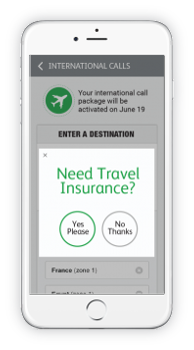Ask and You Shall Receive: Using Surveys to Improve Your In-App Engagement Efforts
In-app surveys can be a powerful tool for improving your customers’ experience, in the app and beyond. In the process, surveys can help you promote new features, collect feedback, and recapture the attention of disengaged users.
With surveys, as with other app elements, success requires targeting the right audience, at the right time, for a specific business goal.
These should be your guiding principles:
- Segment, Segment, Segment – make sure to tailor surveys to specific audiences, based on variables such as: past activity, their preferences, interests, time passed since last visit, location and more,
- Keep it short – in-app time is precious, if possible, stick to a single and concise question
- Be contextual – experiment to figure out the best time to display your survey; it may be tied to past-session data, or in real-time to an action the user just performed, or one he didn’t complete
- Tell them you heard them – “Thank you for your feedback” is not enough if you have a dissatisfied user, you want to personalize the way you respond to users’ answers
- Keep the conversation going – surveys are an opportunity to engage your users in a conversation about their needs. If a user told you they don’t know enough, now is your chance to display a tutorial video. Meeting your users where they’re at can be a great way to educate them about your product, service, and your app
Below are some examples of how these principles can be put into action when introducing surveys into your app.
Measuring user satisfaction
Whether your app provides a product or a service, user feedback is crucial for business success.
 If you are a hospitality app owner, you might want to know how a guest enjoyed their recent stay– this can easily be achieved with a 5-star survey.
If you are a hospitality app owner, you might want to know how a guest enjoyed their recent stay– this can easily be achieved with a 5-star survey.
This kind of survey is also an opportunity for you to further personalize the user’s experience, because you can customize what the users see after taking the survey– good reviews get a heartfelt thank you, but lower ratings are an opportunity to continue the conversation.
It’s also a chance to extend the flow of your conversation with the user, and capture further information about why they are dissatisfied.
In the case of loyal users, you might simply want to know how they’re enjoying using your app, or a new feature.
Introducing a new app feature
You invest time and money in developing new features for your app, but they often get overlooked by users, even the loyal ones. Using a survey is an interactive way to introduce a new feature to your users and easily crystallize for them both the way to use it and the value.
 For example, if you recently added a mobile wallet capability, a simple yes/no survey can be a great introduction to the service.
For example, if you recently added a mobile wallet capability, a simple yes/no survey can be a great introduction to the service.
Collecting data
You might be considering a new feature or service that you’d like to integrate into your app, but you don’t yet have enough data to make an educated decision.
 Surveys are a great way to gauge where your users are at– their answers can tell you what you still need to work on, and those that are interested should become a part of your future launch audience.
Surveys are a great way to gauge where your users are at– their answers can tell you what you still need to work on, and those that are interested should become a part of your future launch audience.
Promoting a specific product
Yes/No surveys as well as single-choice ones, can be a fantastic way to entice users to buy a new product or register for a new service.

A travel app is ripe for upsell and cross-sell opportunities, because in travel, context is everything! Perhaps you know that a user is about to board a plane, an ideal opportunity to offer them trip-specific services, like an in-flight meal.

Another example might be offering travel insurance to a user who just purchased an international call plan – now is the time that they are planning their trip, so a yes/no survey is an unintrusive way of introducing a service they most likely need anyway.
This is exactly the kind of personal touch that users have come to expect.
Remember, surveys are a powerful tool for you as an app owner, and for your users as consumers. Don’t abuse your power by overloading them, and always keep your surveys personal and timely.


